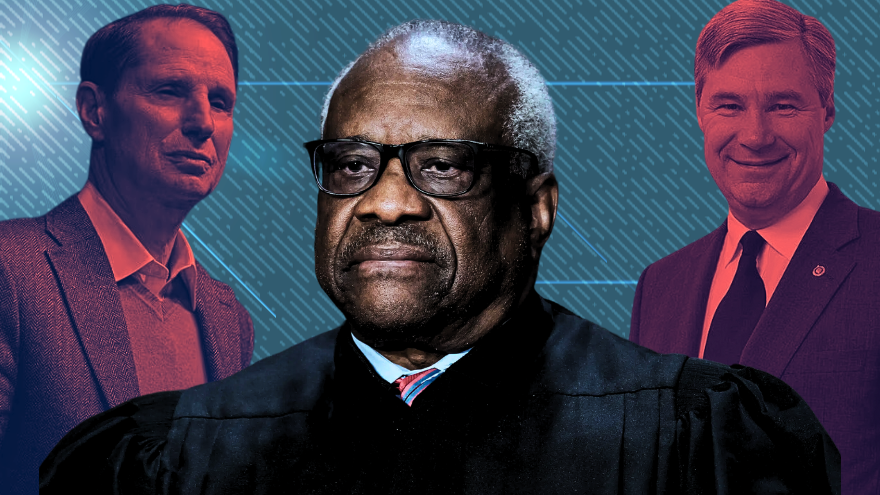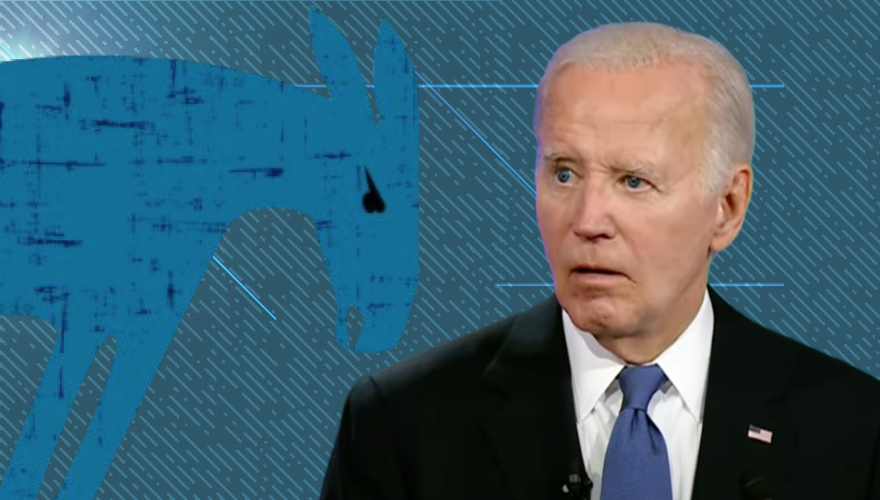Sens. Sheldon Whitehouse (D-R.I.) and Ron Wyden (D-Ore.) have sent a letter to Attorney General Merrick Garland requesting the appointment of a special counsel to investigate potential ethics violations, false statements, and breaches of tax laws. Under federal reporting rules, Supreme Court justices are required to disclose certain gifts. Recent investigations by ProPublica, a left-leaning media outlet, revealed that Thomas accepted numerous trips over the years paid for by his close friend, Harlan Crow, a prominent political donor. Thomas and Crow's friendship spans over two decades. Some of the travel and accommodations provided by Crow included trips aboard his yacht, his Bombardier Global 5000 private jet, and dinners. ProPublica reported, “These trips appeared nowhere on Thomas’ financial disclosures. His failure to report the flights appears to violate a law passed after Watergate that requires justices, judges, members of Congress and federal officials to disclose most gifts,” according to two ethics law experts. Whitehouse and Wyden argue in their request to the DOJ that “this conduct likely violates the Ethics in Government Act, which requires government officials, including Supreme Court justices, to file annual reports disclosing gifts and income accepted from outside sources.” However, under that law, as detailed in the U.S. government’s Filing Instructions For Judicial Officers and Employees, there are exemptions to reporting requirements for friends if the gift is “commensurate with the occasion and the relationship,” which could likely apply given the long-standing friendship between Thomas and Crow. Despite this, Whitehouse and Wyden assert that the gifts may still violate federal law. “We do not make this request lightly. The evidence assembled thus far plainly suggests that Justice Thomas has committed numerous willful violations of federal ethics and false-statement laws and raises significant questions about whether he and his wealthy benefactors have complied with their federal tax obligations,” the senators said in a statement accompanying their letter to Garland. Thomas has defended his friendship with Crow, explaining that under the federal reporting requirements at the time (which Congress updated only last year) the gifts were not reportable. “Early in my tenure at the Court, I sought guidance from my colleagues and others in the judiciary, and was advised that this sort of personal hospitality from close personal friends, who did not have business before the Court, was not reportable," Thomas said. “I have endeavored to follow that counsel throughout my tenure, and have always sought to comply with the disclosure guidelines.” Crow also issued a statement, emphasizing that he and Thomas never discussed pending or lower court cases and that he was unaware of any instance where friends in their circle sought to influence Thomas on any case. Thomas has long been a target of Democratic wrath, which intensified two years ago after the Supreme Court overturned Roe v. Wade. The decision itself was not the sole reason for renewed antagonism toward Thomas. In his concurring opinion, he questioned the precedent of substantive due process, a legal philosophy that certain rights (not explicitly defined in the Constitution) are so fundamental that the government may not infringe on them. Substantive due process has underpinned laws protecting abortion, access to contraception, and gay marriage — key policy priorities for Democrats over the past 50 years. Recent cases have also provided Thomas the opportunity to challenge historical precedents. In his opinion in Chevron v. Natural Resources Defense Council, which significantly curtailed the administrative state, Thomas argued that federal administrative agencies have been “unconstitutionally exercising ‘legislative powers’ vested in Congress” by creating laws instead of elected lawmakers. Thomas noted that the Chevron decision “ends our 40-year misadventure” of allowing agencies like the Environmental Protection Agency (EPA) and Occupational Safety and Health Administration (OSHA) to violate the Constitution by writing laws, rather than Congress.Congressional Democrats have intensified their scrutiny of U.S. Supreme Court Justice Clarence Thomas, urging the Department of Justice (DOJ) to initiate a criminal probe into gifts he received from wealthy political donors.
Politics /
Congressional Democrats Call for Criminal Probe of Justice Clarence Thomas
Lawmakers say 'Thomas has committed numerous willful violations of federal ethics' laws

*For corrections please email [email protected]*
